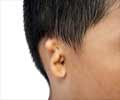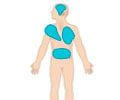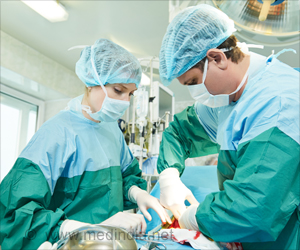What is Plastic Surgery?
Plastic surgery is often misunderstood and misrepresented and a large part of this has to do with the public’s perception of various popular media reports. Plastic surgery is not just some frivolous branch of medicine used to cater to the whims and fancies of egotistical celebrities in Hollywood and across the world. Its application in modern medicine goes beyond changing the size of breasts, stomachs and other body parts. Plastic surgery emerged as a medical specialty because of the medical need for a reconstructive surgical procedures to treat disfiguring injuries, scars or other abnormalities resulting from accidents, burns and certain diseases like cancer or congenital diseases.
Plastic surgery is a highly specialized type of surgery in which plastic surgeons try to salvage and improve the patient’s physical appearance and ability to function. They employ both reconstructive and cosmetic procedures to achieve these goals, both of which are extremely important. While reconstructive plastic surgery may be viewed as functional, the outcome of cosmetic procedures can also have far reaching consequences, as deformities and blemishes can severely affect one’s psychological well-being, self-confidence and self-esteem. While the primary aim of plastic surgery is the restoration of tissue and skin to normal functioning, improving one’s appearance is a secondary objective. The cost of plastic surgery can vary greatly depending on the expertise and experience of the surgeon, but costs tend to be higher for procedures that require greater intervention.
Broadly speaking, plastic surgery can be categorized into two types:
- Reconstructive – Reconstructive procedures aim to correct defects on the face or body, including birth defects like cleft palate and ear deformities, injuries that cause disfiguration such as from a dog bite, acid attack or burns, or to reconstruct body tissue that is destroyed in an accident or removed because of some disease like breast cancer.
- Cosmetic – Cosmetic or aesthetic procedures are used to alter one’s bodily appearance, making changes to any body part that the patient is unhappy with. Unlike reconstructive procedures, cosmetic surgery is usually not used to repair damaged tissue but is instead used to create a look that is more appealing. Typically, cosmetic procedures include augmentation mammoplasty or reduction mammoplasty (breast enlargement or reduction), rhinoplasty (reshaping the nose) and liposuction, which is an increasingly popular method of fat removal from certain parts of the body. Some cosmetic procedures don’t even involve conventional invasive methods of surgery but simply employ lasers, such as in hair removal or dermabrasion.
![Cosmetic Surgery Cosmetic Surgery]()
In a culture obsessed with celebrities and having the perfect appearance trumps all else, body image issues are a common problem and increasing number of teenagers and younger adults seek cosmetic plastic surgery today to change their appearance when unnecessary. In most parts of the world cosmetic surgery procedures are not covered under health insurance plans unless the procedure is deemed medically necessary.
Plastic surgery is a rather vast specialty and there are various techniques and procedures used in the discipline depending on the condition or concern that needs to be addressed. These include:
- Skin Grafts – This is a procedure that we’ve all heard about. It involves transplanting healthy skin from one region of the body onto a region of the body where there is loss or damage to the skin. Skin grafts are vital in numerous situations such as when dealing with deep burns or open wounds.
- Skin Flap Surgery – In this procedure a living piece of tissues is transferred or transplanted from a healthy area of the body to another area. The tissue is attached along with the blood vessels that sustain it, with the tissue therefore remaining partially attached to the body whilst being transferred, hence giving it the name skin flap surgery. This procedure is sometimes required when dealing with wounds or burns in which the damage is too extensive to heal on its own or in treatment for skin cancer.
- Tissue Expansion – This is a procedure in which an area of skin is forced to grow by inducing expansion and stretching surrounding tissue. This extra newly grown skin can help in the reconstruction of an area in close proximity. It is commonly used in breast reconstruction as well as in the reconstruction of skin that is damaged from birth defects, surgery or other procedures.
- Cosmetic Procedures – The most common cosmetic procedures performed by plastic surgeons include rhinoplasty (nose reshaping), blepharoplasty (eyelid reshaping), mammoplasty (breast augmentation or reduction) and liposuction.
![Cosmetic Procedures Cosmetic Procedures]()
Other techniques that are routinely used in plastic surgery today include vacuum closure, camouflage make-up or cream and prosthetic devices.
Plastic surgery requires some amount of special preparation in addition to the routine prerequisites before any surgery. Nevertheless, here are some things that you should keep in mind and do in order to prepare for your procedure:
- During your pre-operative visit make it a point to ask your surgeon any questions you want answered and make sure that all your doubts are resolved.
- It is absolutely vital that you heed all advice from your health care provider with regard to medication. Certain medications like aspirin and other non-steroidal anti-inflammatory drugs can significantly increase the risk of bleeding during surgery and must be avoided for at least two weeks before and after the procedure.
- There are certain routine tests that you will be asked to undergo, which is a standard procedure before almost any surgery. These include tests like a blood count test to ensure you are healthy enough to endure surgery.
- Because of the adverse effects of smoking on circulation, smoking can impede healing. For this reason, it is important that you quit smoking at least a month prior to surgery.
It is also important that at this time you make arrangements for yourself during the postoperative period such as arranging for someone to clean your house and pick you up after the procedure. Stock up on health foods and definitely on some healthy comfort foods like yogurt, pudding, gelatin and other bland foods. Make sure that all medications and other objects that you require are placed in specific areas where they are easily reachable and not hard to find.
The recuperative or rehabilitative stage is usually the most crucial as it often determines or influences the outcome of surgery. Follow these safeguards to ensure optimal healing and recovery from plastic surgery:
- Make sure that you follow your doctor’s prescription with regard to medications and dosage to the tee. Try not to skip any medications even if you deem pain medications as unnecessary. Pain medications will be of little comfort once the pain gets severe.
- Get adequate rest at least for the first day after surgery.
- Avoid the consumption of any alcohol while you are on any kind of pain medication.
- Do not engage in any kind of strenuous or high risk activity and be very cautious with all of your movements; climb stairs slowly and avoid lifting heavy objects, whether a jar full of water or a dumbbell.
- Depending on the region that is being treated, elevate it to decrease swelling.
- Avoid having a bath for the first day or two and avoid soaking in a bath tub or pool for at least 3 weeks. A shower should be fine after one or two days, but otherwise try to keep the incisions clean and dry.
- Contact your surgeon promptly if you notice any bleeding, excessive pain, swelling, discharge or discoloration at the site of surgery. Symptoms of postoperative infection like fever, chest pain and breathlessness should also be treated very seriously.
Plastic surgery comes with its fair share of risks, which is why it should not be entered into lightly, especially if purely cosmetic. The severity of risks and the possibility of complications developing can vary greatly, however, depending on the skill and experience of the surgeon. Some of the complications of plastic surgery can include:
- Severe bleeding that necessitates a blood transfusion.
- Extreme pain and discomfort that can only be relieved with pain medications.
- Postsurgical infections that could require antibiotic treatment and in some cases even necessitate further surgery.
- Scarring is normal after surgery at the site of incision, but these scars will usually shrink and soften over time.
- Implant failure is a problem that can occur when an implant used leaks or gets misshapen. This is then addressed with further surgery.
- Skin flap or skin graft failure may also occur in some cases if there is inadequate blood flow to the area. In such cases surgery may be necessary for removal of the graft and reconstructive surgery will also need to be performed once more.

















